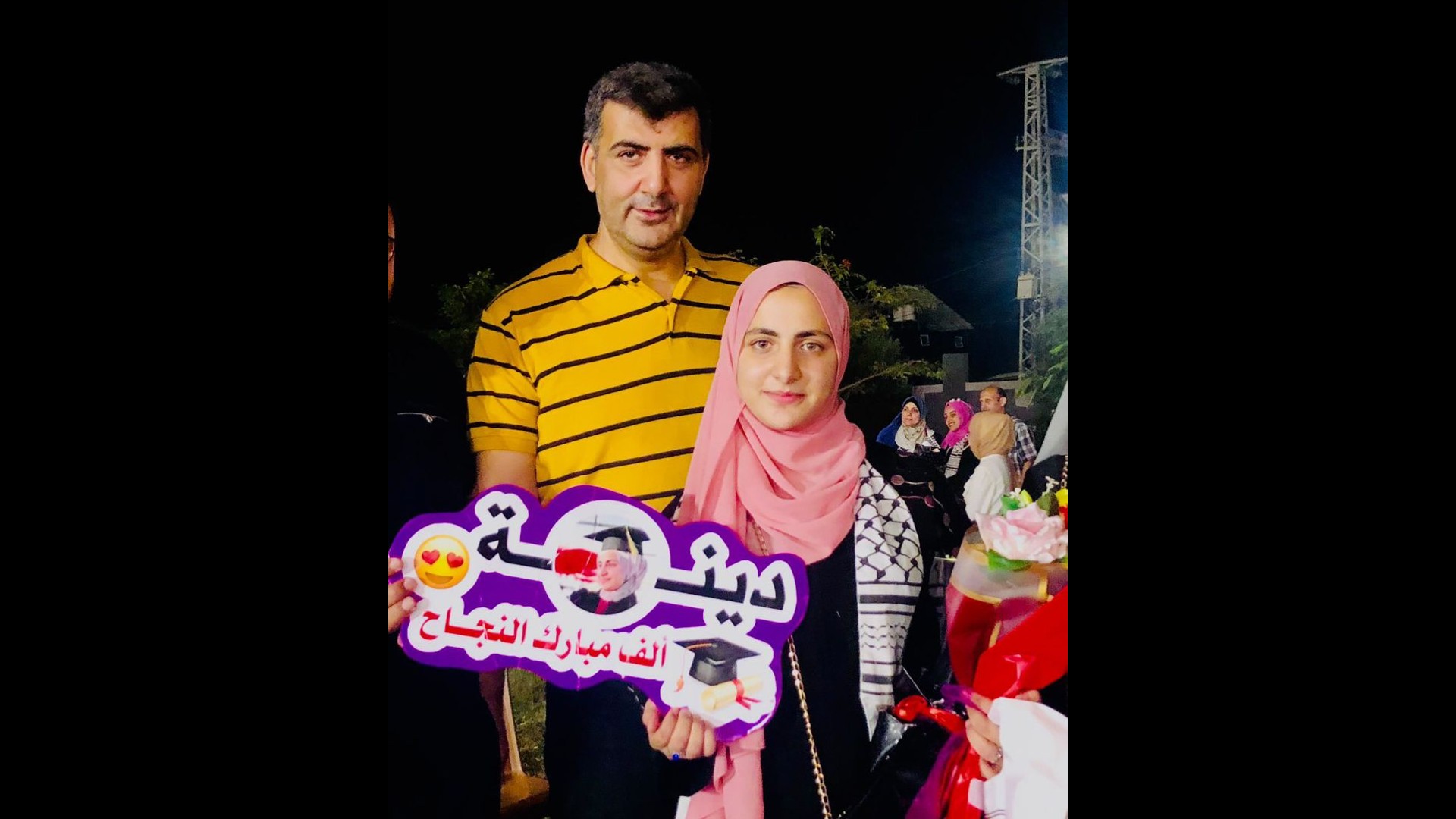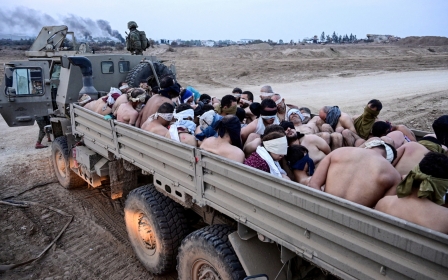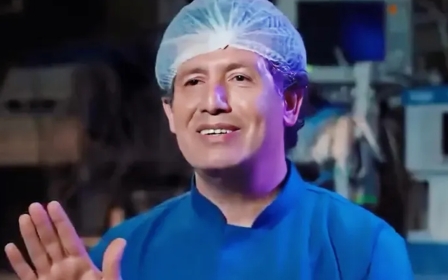Israeli officers tortured this doctor to death, then hid the news for months
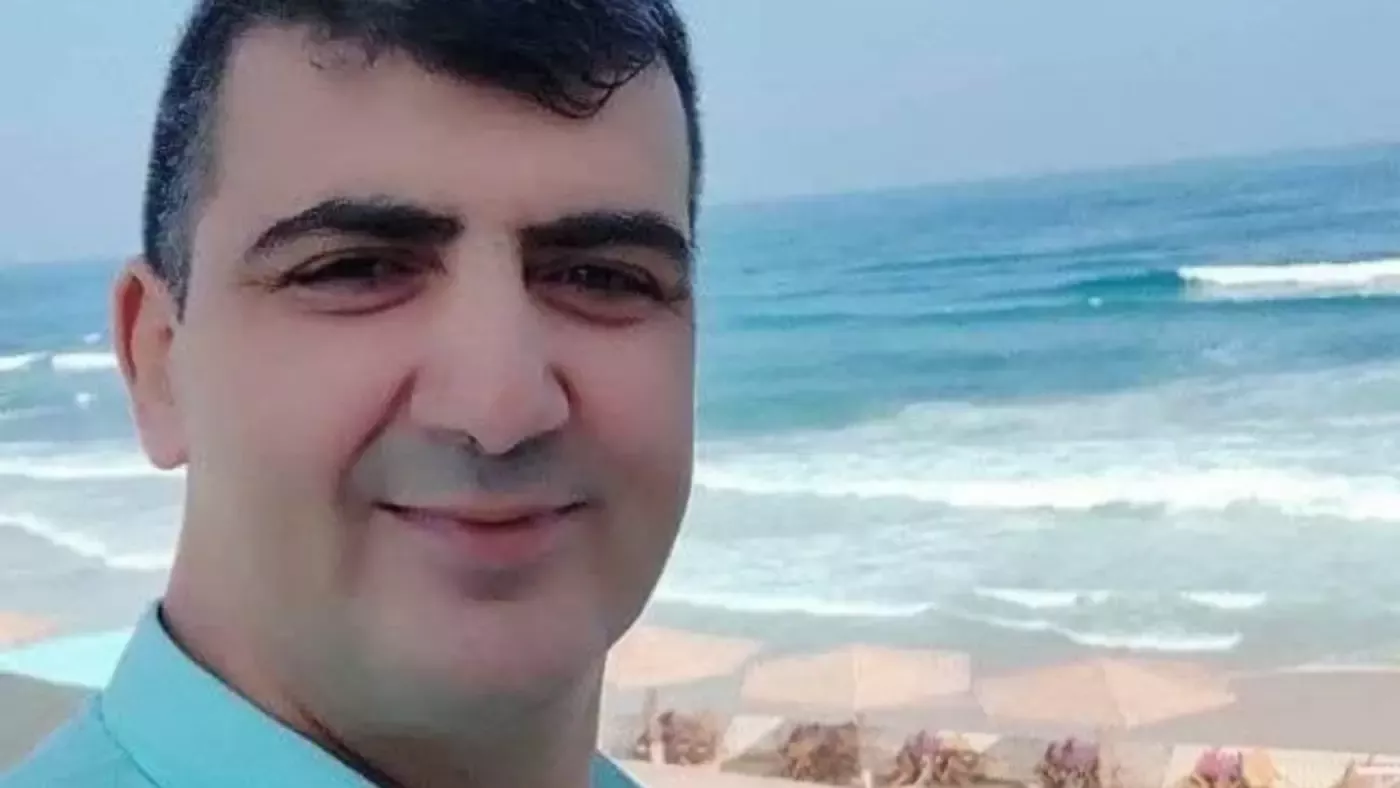
Dina al-Rantisi remembers the last words she told her father before he was detained by Israeli soldiers and died in prison less than a week later.
“I was next to him,” Dina, a Palestinian resident of Gaza, told Middle East Eye.
“I could not move my hands, hold him or do anything. The occupation forces had ordered us to walk without looking right or left,” she recalled.
Dr Iyad al-Rantisi, Dina’s father, was leaving northern Gaza on 10 November with his family to the south, on the Israeli-designated “safe corridor”, when he was stopped by Israeli forces.
He was picked out from the crowds and taken away, as his family were told to keep going.
New MEE newsletter: Jerusalem Dispatch
Sign up to get the latest insights and analysis on Israel-Palestine, alongside Turkey Unpacked and other MEE newsletters
“I cried a lot that day,” Dina, 19, said. “The last words I said to him were, 'May God protect you, my father, my love.'"
For the next seven months, Iyad, 53, was forcibly disappeared. Dina had no information about his whereabouts.
Her hopes of seeing him again were shattered earlier this month, when it was revealed he died "under torture" in Israeli detention, six days after his arrest.
“I couldn’t believe he died,” Dina said. “Even now, I can’t comprehend he will no longer be in my life.”
At the start of the Israeli war on Gaza, Dr Iyad, director of the Kamal Adwan hospital's maternity department, refused to leave Gaza City, opting to stay with his patients and fulfil his humanitarian mission.
'I want to say goodbye to him. I want to see him. I miss him so much'
– Dina al-Rantisi, Palestinian doctor's daughter
But after a month of intense Israeli bombardment and siege, including the targeting of hospitals, he decided to take his family to safety.
Still in his scrubs after finishing surgery, he moved south with his wife, their children Ahmed, 23, Dina, 19, and Muhammad, 15, and his older sister, Ibtisam.
He took the road instructed by Israeli forces, assuming it would grant him safe passage. But neither that nor his identifiable medical uniform made any difference.
"Nurse, come," the soldier said when he spotted him, according to Dina. That was the last time she saw her father.
Love, longing and hope
Dr Iyad’s death was first reported by Haaretz on 18 June.
According to the Israeli daily, he died at an interrogation facility run by the Shin Bet, Israel’s internal intelligence agency, six days after his arrest on 10 November.
However, news of his death was censored by Israeli authorities for over six months, and newspapers were not allowed to publish anything about it.
Throughout this period, Iyad's family presumed he was alive and hoped to see him soon.
“My family and I were waiting for any news, praying day and night for his release,” Dina said. “Why did Israel place false hope in our hearts?”
Equally exhausting without her father was life in displacement, where simple things like getting water are a daily struggle, she added.
But most importantly, it’s his love that she missed the most.
"I filmed numerous videos with my phone and documented everything that happened to us in my diary, including all the suffering we experienced.
“I wrote about my love, longing and need for him, hoping I could share all of this with him when he was free.
To Dina, Iyad was more than a father; he was also a friend, a motivator and her close confidant.
'How can a doctor go from carrying out a humanitarian mission to being detained and then killed?'
- Dina al-Rantisi
"My father was not an ordinary person,” Dina, a university student of pharmacy, said. "He cared about me since my childhood and would call me ‘Doctor Dina’. He always encouraged me to excel in my studies and pursue postgraduate studies.”
Dr Iyad’s death had come as a shock to the family, Dina said. But now, they just want to see his body one last time.
"I want my father’s body. I want to say goodbye to him. I want to see him. I miss him so much.
"I ask the international community and global organisations not to forget the prisoners, especially the doctors. How can a doctor go from carrying out a humanitarian mission to being detained and then killed?'"
Doctors tortured to death
Iyad al-Rantisi is the second Palestinian physician from the Gaza Strip to die from torture in Israeli detention since 7 October.
In April, prominent Palestinian surgeon and professor of orthopaedic medicine Dr Adnan al-Bursh was killed by torture while in Israeli detention, according to the Palestinian Prisoners' Society.
Israeli forces have killed at least 500 medical workers and detained more than 310 in the ongoing onslaught on the Palestinian enclave.
The devastating assault, now in its ninth month, has "deliberately" destroyed Gaza’s health system, with hospitals and clinics bombed and raided, and doctors targeted.
An estimated 4,000-5,000 Palestinians in total were detained in the Gaza Strip in the ongoing invasion, including women, children, the elderly, paramedics, journalists, doctors, and aid workers.
Israeli authorities have been accused of widespread and systematic torture and abuse of Palestinian detainees and prisoners since.
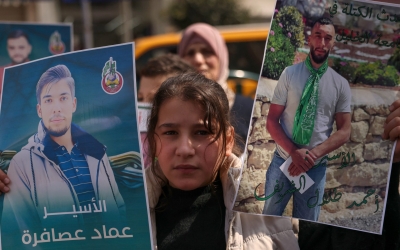
This has led to the death of around 60 Palestinians in Israeli custody, at least 40 of them from the Gaza Strip, according to a tally by Middle East Eye based on media reports.
Roughly 1,500 have been released, and many have described some of the ill-treatment they endured.
This has included being sexually abused, electrocuted, beaten, deprived of food and sleep, humiliated and kept in degrading positions, urinated on, and being handcuffed tightly for prolonged periods, causing severe injuries that led to amputation in some cases.
Survivors say doctors have been singled out with more cruel treatment than others.
Dr Hossam Abu Safiya, Kamal Adwan hospital’s director, said he was “indescribably hurt” to hear of his colleague Dr Iyad’s death.
“I want to know the details of Dr Iyad’s death,” Dr Abu Safiya told MEE.
Dr Iyad was a healthy man before his arrest and didn’t suffer from any disease, he said.
He added that he came to learn that the 53-year-old was “subjected to severe beatings and torture”, which led to internal bleeding in the stomach that was neglected by Israeli authorities, eventually leading to his death.
Losing him meant losing another talented and devoted doctor in Gaza, Abu Safiya said, further weakening the health system.
"Dr Iyad was known for his politeness, morals, good-heartedness and great commitment to his work.
“He risked his life to serve patients and never thought of abandoning his humanitarian duty."
Middle East Eye delivers independent and unrivalled coverage and analysis of the Middle East, North Africa and beyond. To learn more about republishing this content and the associated fees, please fill out this form. More about MEE can be found here.


